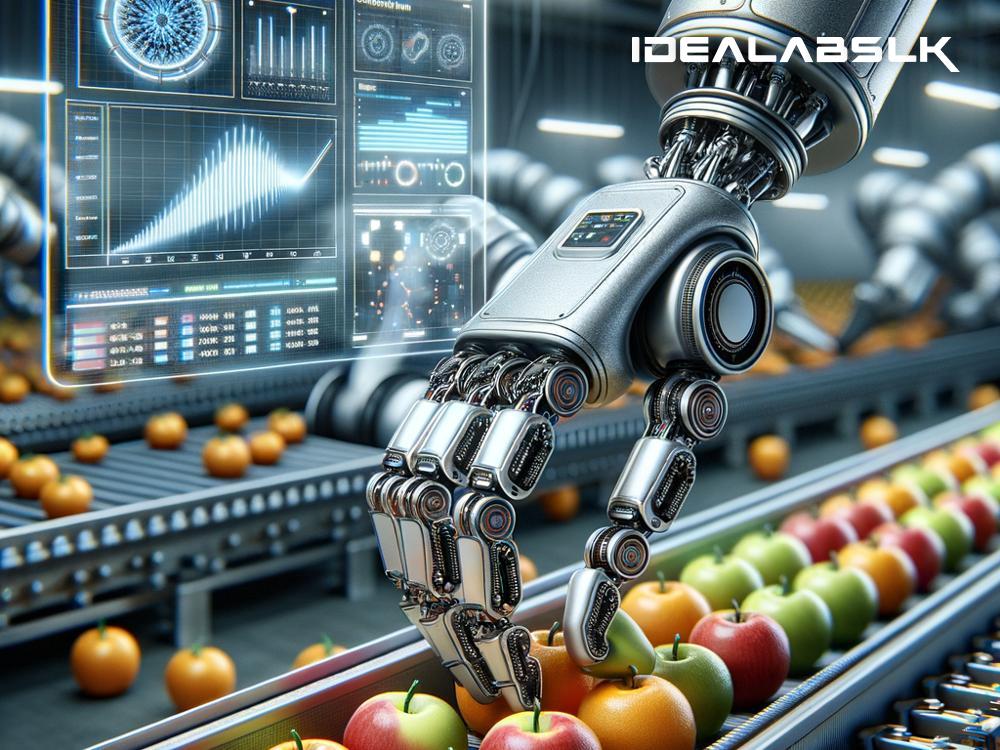Navigating the Future Plate: AI-Driven Quality Control in Food Production
In the bustling world of food production, making sure that the food on our plates is safe, fresh, and delicious is a top priority. It's like being a guardian of good taste and health, ensuring that every bite we take is up to mark. But how do manufacturers keep up with the enormous demand while also maintaining high standards? The answer is as futuristic as it is effective: Artificial Intelligence (AI).
Imagine having a super-smart friend in the kitchen who can taste, smell, and see food exactly as humans do, but with superhero abilities. This friend never gets tired, works 24/7, and never misses a thing. This is what AI-driven quality control is bringing to the food production table. Let’s dive into how this technology is shaping the future of our food.
What is AI-Driven Quality Control?
In simple terms, AI-driven quality control in food production involves using advanced technology like machine learning, computer vision, and sensory technologies to monitor, inspect, and ensure the quality of food products. It's like having an army of tiny robots and smart computers teaming up to examine every nook and cranny of what we eat, making sure everything checks out.
The How and Why
So, how does it work? Through cameras and sensors, AI systems can look at food products in much the same way a human quality inspector would, but in much more detail. They can detect things like color, size, shape, and even texture. Then, by comparing these observations to a vast database of what's considered "good" or "bad," they can identify defects or quality issues in real-time.
But it doesn't stop at seeing; AI can also "taste" and "smell" using chemical sensors, detecting if a food item is starting to spoil before it even reaches the supermarket shelves. This means fewer health risks and less waste – a win-win for both consumers and producers.
Why is this so important? In our fast-paced world, we’re producing and consuming food at astonishing rates. Traditional quality control methods, which rely heavily on human inspection and manual labor, are not only slow but can also be less accurate and more costly. AI-driven quality control speeds up the process, reduces the chance of error, and can even predict potential problems before they arise, saving time and money.
The Benefits Unpacked
The advantages of integrating AI into food quality control are vast. For starters, it enhances food safety, ensuring that what we consume meets health standards. It also promotes sustainability by reducing waste; if AI can detect that a batch of fruit isn't up to standard before it's shipped out, those resources can be redirected instead of being disposed of.
Moreover, AI-driven systems provide detailed data analysis, offering insights into production processes that can help food manufacturers improve and innovate. This could mean longer-lasting food products, more efficient production methods, or even new food items designed to better meet consumer desires.
Facing the Challenges
Despite its benefits, implementing AI in food production isn't without its hurdles. High initial costs, technical complexities, and the need for skilled personnel to manage and interpret AI systems are significant considerations for many companies. Moreover, as with any technology handling sensitive data, privacy and security concerns must be addressed to protect proprietary recipes or production methods.
The Road Ahead
As technology advances, and as we become more accustomed to the digital revolution in every aspect of our lives, AI-driven quality control in food production is not just a possibility; it’s the future. It promises a world where food safety is no longer left to chance, and quality is guaranteed through the precision and efficiency of smart technology.
In envisioning this future, we must also consider ethical implications, ensuring that such technologies are accessible to all, not just the big players, and that they contribute to a more sustainable and equitable food system worldwide.
Let's Eat!
As we stand on the brink of this new era in food production, it's exciting to think about the possibilities. With the help of AI, we can look forward to a world where every meal is not just delicious but is also produced responsibly, sustainably, and safely. AI-driven quality control is more than just a technological marvel; it's a testament to our ongoing commitment to better food, better choices, and a better planet. So, here's to a future where the quality of our food is as smart as the technology behind it!

